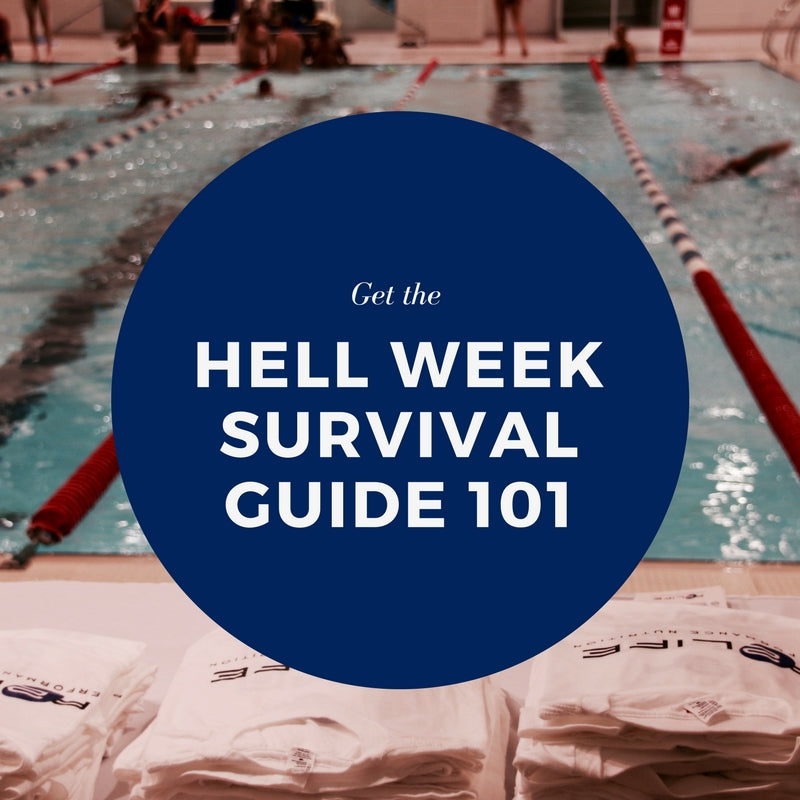
Hell Week - Your Guide to Surviving and Thriving
The holidays mean something different to everyone. Their arrival may have you taking stock of your year, or you may find yourself immersed in holiday parties and family time. Whether you celebrate Christmas, Hanukkah, Kwanzaa, the festive season or feel a special empathy for the green monster in Dr. Suess’s ‘The Grinch’, swimmers tend to have one special thing in common. As we look ahead to the end of the holidays, keeping our eye on the ball does not refer to the one that drops at midnight. No, it’s the anticipation of the ball that inevitably drops in our stomachs as we are rudely awakened to the arrival of Hell Week.
Hell Week is hard. It’s an opportunity for us to cram a month’s worth of training into one to two brutal weeks. Stepping into the pool during Hell Week means stepping out of your comfort zone. Whether you’re approaching this as an opportunity to push yourself and take your sport to the next level or you’re just looking to survive it, focusing on recovery will make all the difference.
Your ability to perform at your best largely comes down to whether you’ve recovered effectively. Is recovery currently part of your training plan? If it’s not, now is the perfect time to start. If it is, now is the perfect time to optimize it. Effective recovery can be the difference between securing a place on the podium or a seat in the stands, nursing an injury.
When you train you’re putting resistance on your muscles, which causes microscopic tears in the muscle tissue. This happens when you’re training harder than usual, or than you have in a while, both of which are likely to be the case during Hell Week. The body rushes to heal these micro-tears by sending satellite cells to the area to heal the tissue and form new muscle protein strands. These cells are responsible for rebuilding muscles, which grow stronger to ensure you will be able to cope with similar activity and levels of resistance in the future.
Incomplete recovery not only impacts your performance but it also puts you at a higher risk for injury and muscle strains. The good news is that effective recovery comes down to one simple equation:
Recovery = Sleep + Nutrition
Your body needs the right nutrition in order to recover effectively. That means the right mix of carbohydrates, the right proteins, healthy fats, hydration, and vitamins and minerals. Without all of these in the right quantities, the body won’t have what it needs to repair effectively. Building tissue takes time, and your body needs sleep to do that. You should be aiming ideally eight to nine hours of sleep each night, and no less than six.
Getting the right nutrition and enough sleep seems simple enough, and with a bit of planning ahead it can be. To help you incorporate optimal recovery into your training plan we’ve put together a comprehensive plan to set you up for success. This guide takes a deeper dive into the science of recovery, breaks down your nutritional requirements and provides nutritional tips, including which types of proteins and carbohydrates, are better for training, and why having a snack before bedtime can be smart, rather than something to feel guilty about. We look at how to get better quality sleep, share some inspiration and tips from the pros, as well as a meal planner guide you can stick to your fridge.
We’re also pleased to announce the Hell Week Kit is back during the Holidays. You asked, we listened. The P2Life team wishes you Happy Holidays and a Happy Hell Week.












Leave a comment
This site is protected by hCaptcha and the hCaptcha Privacy Policy and Terms of Service apply.